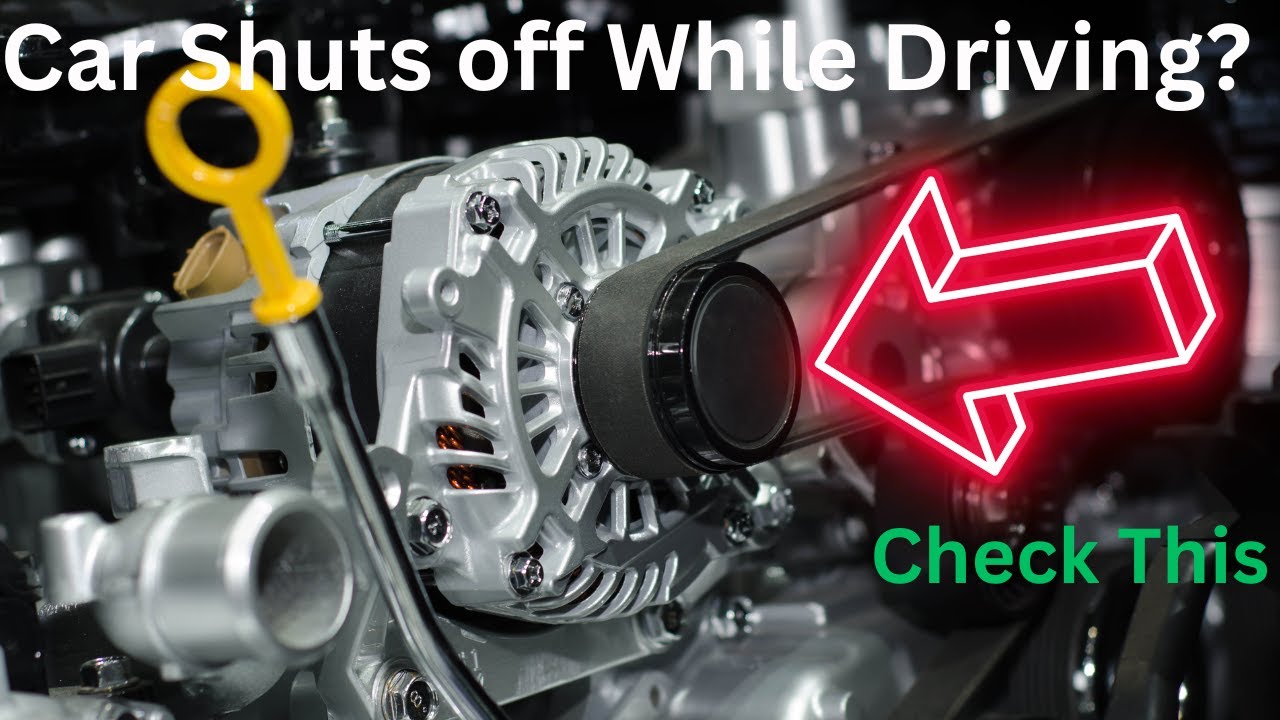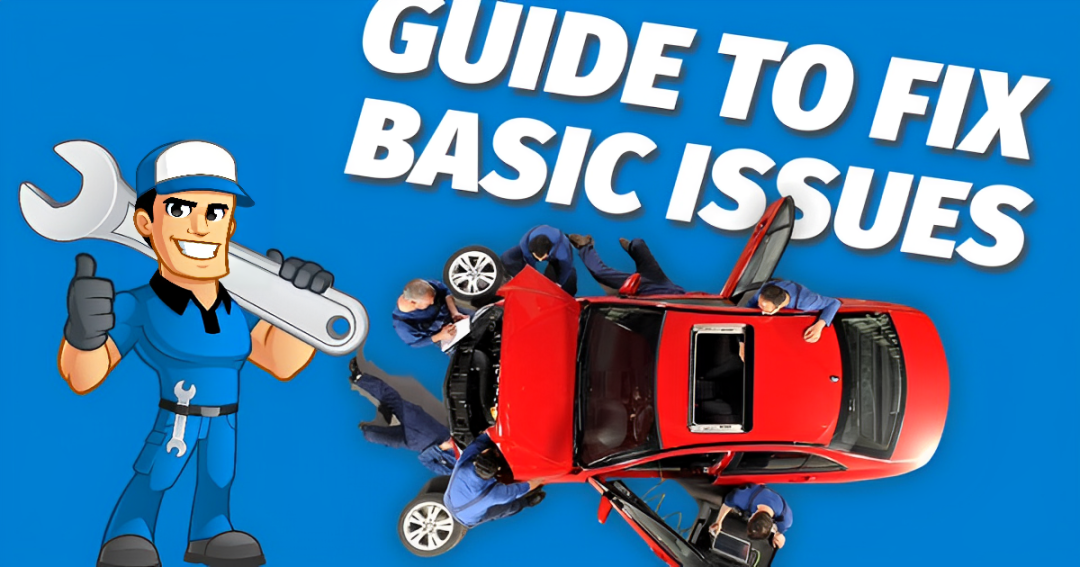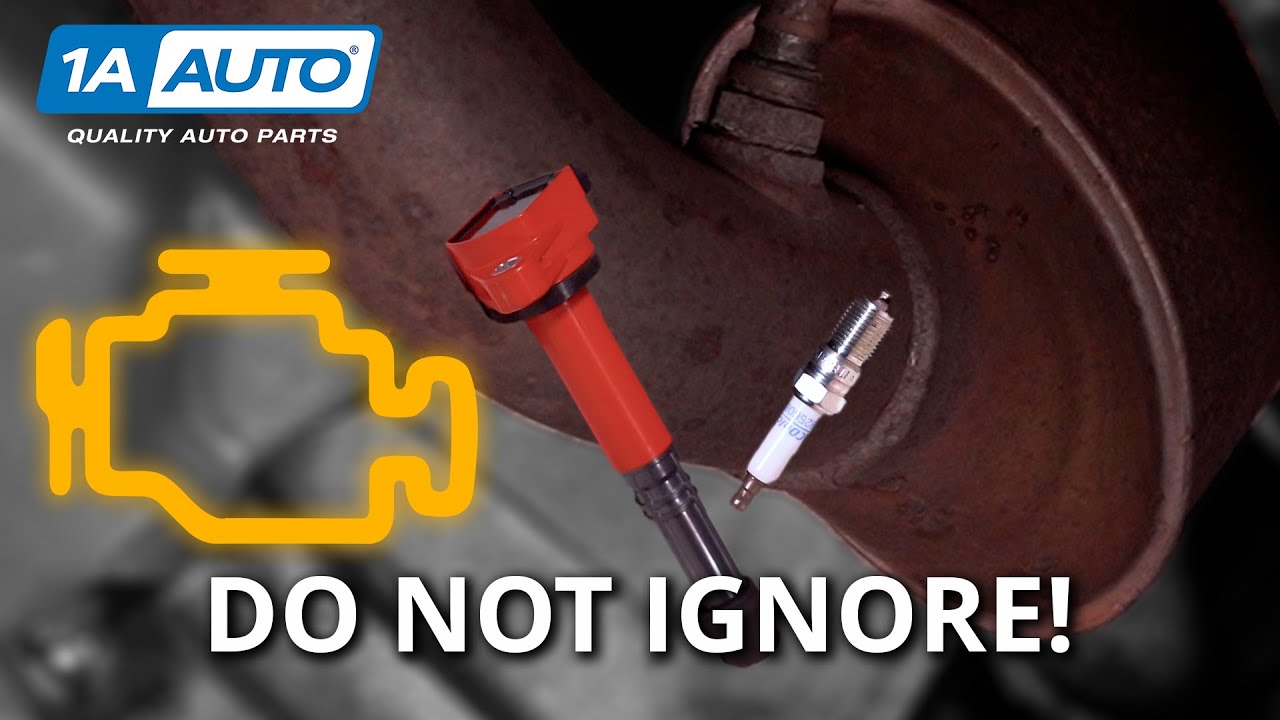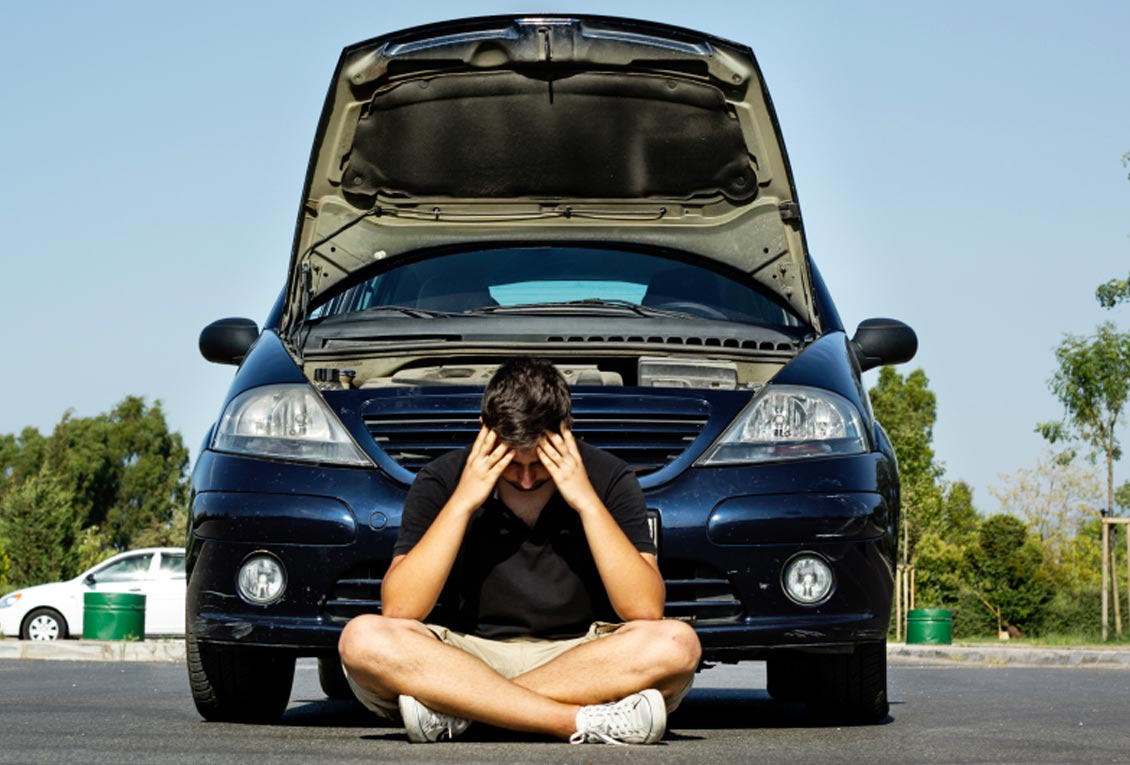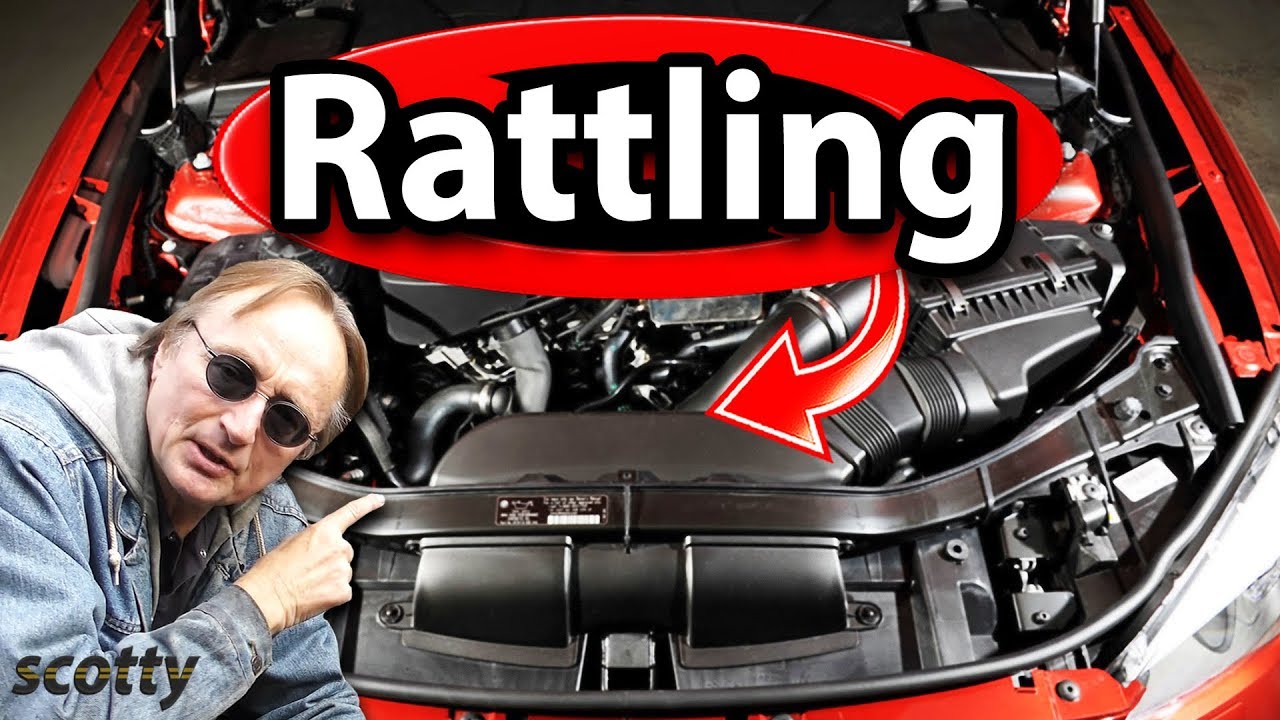Picture this: you’re cruising down the highway, tunes playing, when suddenly your car decides it’s nap time and shuts down. This unexpected halt can turn a smooth journey into a puzzling roadblock. In this guide, we unravel the mystery behind why cars play dead while driving and how to breathe life back into them.
Reasons Why A Car Shuts Off While Driving
The following are the common causes why your car shuts off when you’re driving:
1. Faulty Crankshaft Position Sensor
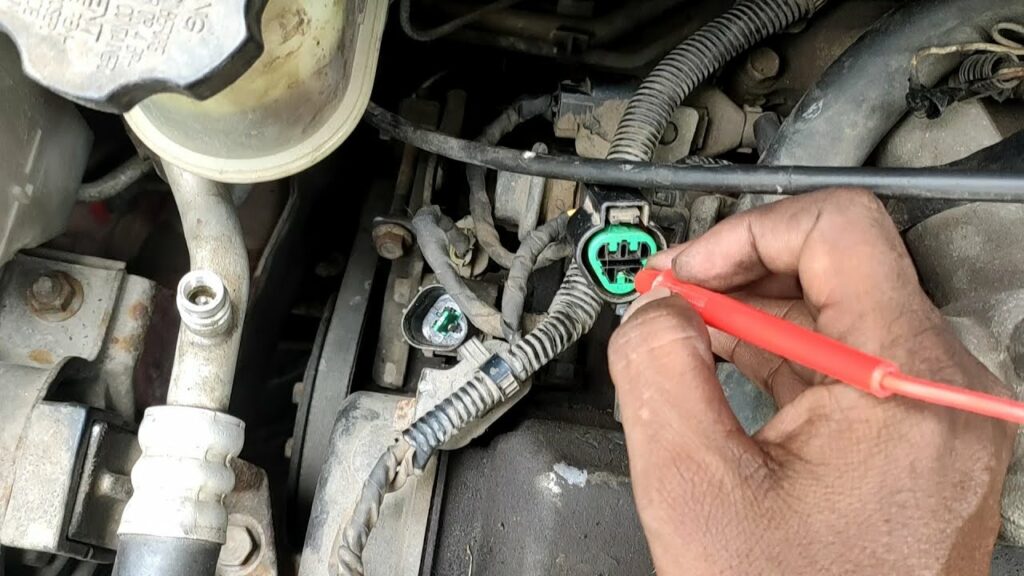
The crankshaft position sensor is essential to a car’s engine management system. It is responsible for monitoring the speed and position of the engine’s crankshaft, which helps to ensure that the engine’s fuel injection and ignition timing are properly synchronized.
This sensor uses magnetic fields to detect the rotation of the crankshaft and sends signals to the car’s computer system to make adjustments as necessary. If the crankshaft position sensor becomes faulty, it can cause the car’s engine to stall unexpectedly while driving.
This happens because the car’s computer system cannot accurately detect the position and speed of the crankshaft, which can lead to incorrect fuel injection and ignition timing. In some cases, the engine may be unable to start at all.
2. Fuel Pump Issues
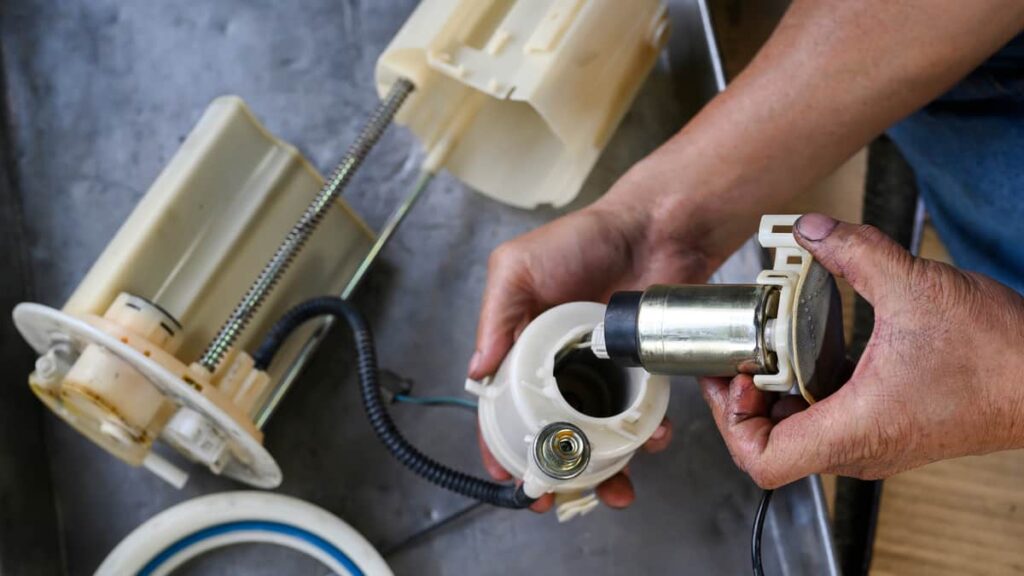
The fuel pump delivers fuel from the gas tank to the engine’s fuel injectors. It is an essential component of a car’s fuel system and ensures the engine receives the required fuel to operate. If the fuel pump is not working correctly, it can cause the engine to stall while driving.
If the pump is not delivering enough fuel to the engine, it can cause the engine to run lean, resulting in stalling. The fuel pump may sometimes stop working, causing the engine to stop running. Other signs of a failing fuel pump may include difficulty starting the engine, sputtering or hesitating while accelerating, and reduced fuel efficiency.
3. Clogged Fuel Filter
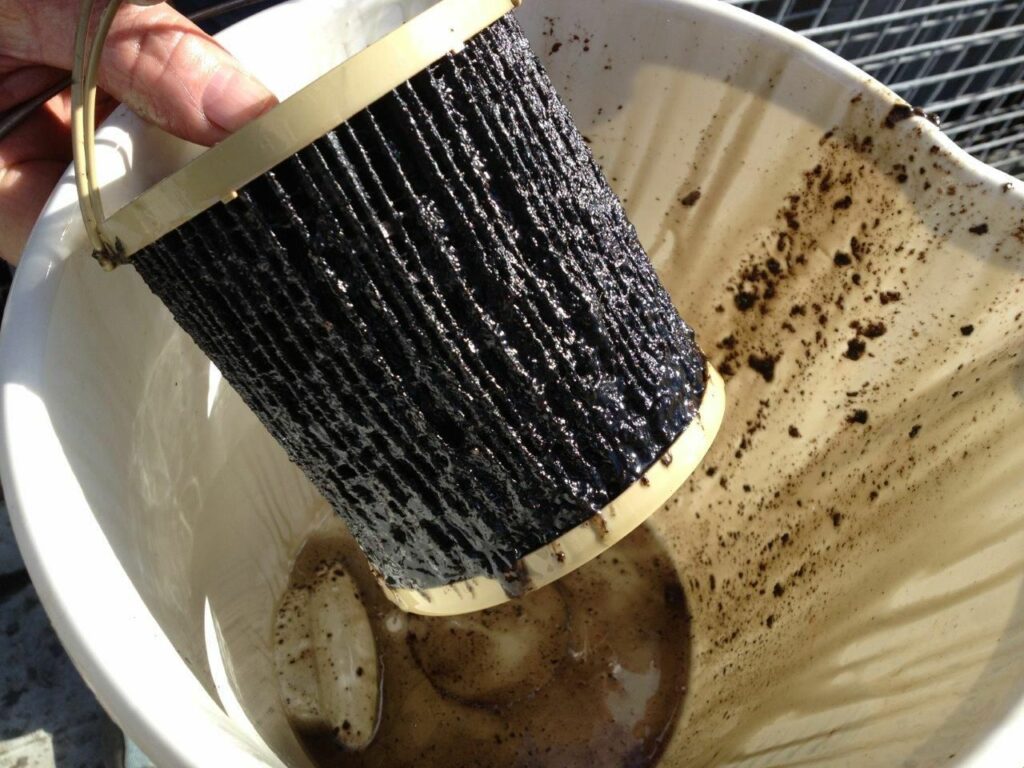
The fuel filter filters out impurities and contaminants from the fuel before it reaches the engine. Over time, the fuel filter can become clogged with debris, dirt, and other pollutants, restricting fuel flow to the engine. If the fuel filter becomes too clogged, it can cause the engine to stall while driving.
A clogged fuel filter can cause various symptoms, including reduced engine power, hesitation while accelerating, and engine stalling. When the fuel filter is clogged, the engine cannot receive the required amount of fuel to operate correctly.
In some cases, the engine may not start at all. Regularly replacing the fuel filter is essential to ensure the engine’s proper operation and avoid unexpected breakdowns on the road.
4. Ignition Coil Failure
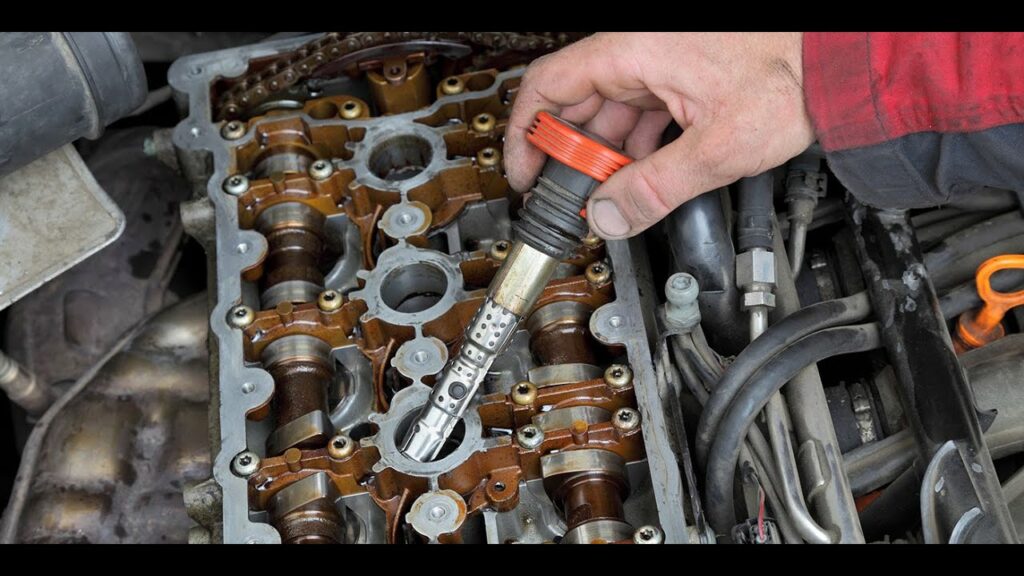
The ignition coil converts the low voltage from the battery into the high voltage required by the spark plugs to ignite the fuel in the engine. If the ignition coil fails, it can cause the engine to stall. This can occur when the coil becomes damaged or worn over time, leading to a loss of power to the spark plugs.
When the ignition coil fails, the engine may exhibit a range of symptoms, including reduced engine power, difficulty starting, misfiring, and eventually stalling. A weak spark from the ignition coil can cause the engine to run poorly or stall entirely. It is essential to have the ignition coil inspected and replaced to ensure the engine’s proper operation and avoid unexpected breakdowns on the road.
5. Alternator Problems

The alternator is a critical component of the vehicle’s electrical system responsible for generating power and charging the battery while the car runs. If the alternator fails, the battery can become drained, leading to a loss of power and eventual engine stalling.
Common symptoms of a failing alternator include dimming or flickering headlights, a weak or dead battery, and difficulty starting the engine. One of the main reasons an alternator fails is a faulty voltage regulator, which controls the flow of electricity to the battery and the rest of the electrical system. Over time, the voltage regulator can become damaged or worn, leading to various electrical problems and eventual alternator failure.
6. Battery Issues
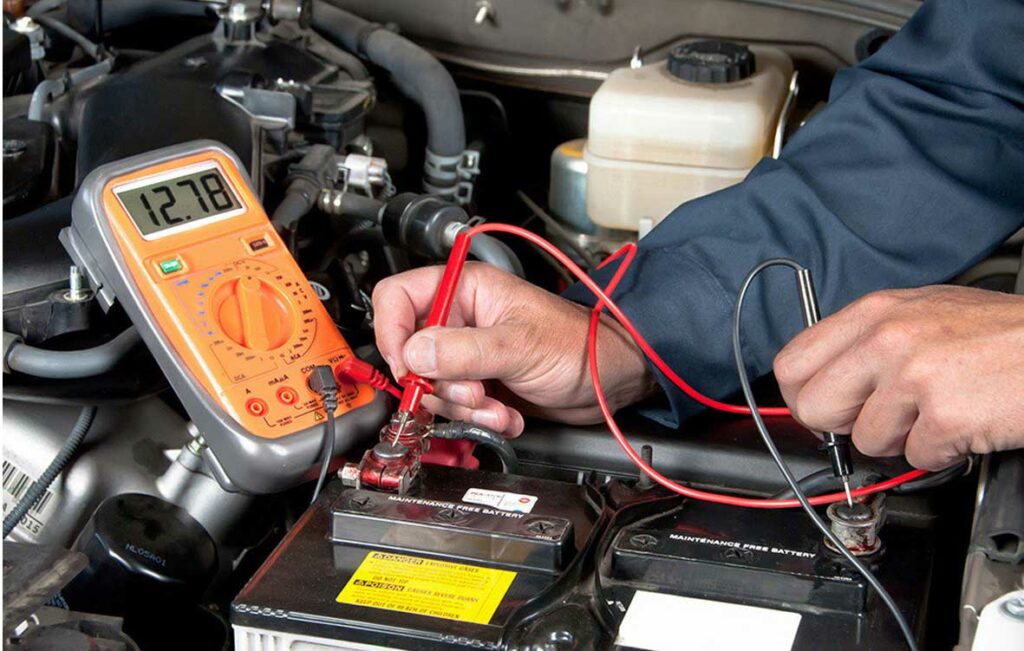
The battery is a crucial component of the car’s electrical system that stores and provides power to start the engine and operate various electrical accessories. If the battery is weak or dead, it may not have enough power to start the engine or keep it running, leading to stalling or failure to start.
A common cause of battery failure is age or lack of maintenance, which can cause the battery to lose its charge and ability to hold a charge over time. In addition to age and lack of care, extreme temperatures, frequent short trips, and leaving the lights or accessories on when the engine is not running can also contribute to battery failure.
To prevent battery issues, regular maintenance and testing can help identify and address potential problems before they cause stalling or other engine issues.
7. Overheating Engine
Overheating is a common problem that can cause a car engine to stall or shut off unexpectedly while driving. When the engine becomes too hot, it can damage various components, including spark plugs, sensors, and fuel systems. This can cause the engine to misfire or fail, leading to stalling or shutting off.
Overheating can occur for various reasons, such as a malfunctioning radiator, a failed water pump, or low coolant levels. To prevent overheating and engine stalling, regularly checking and maintaining the cooling system is essential.
This includes ensuring proper coolant levels and performing routine maintenance such as flushing the system and replacing old or worn-out parts. Also, driving habits can affect engine temperature, so avoiding driving in hot weather or stop-and-go traffic for extended periods is essential.
8. Malfunctioning Mass Airflow Sensor
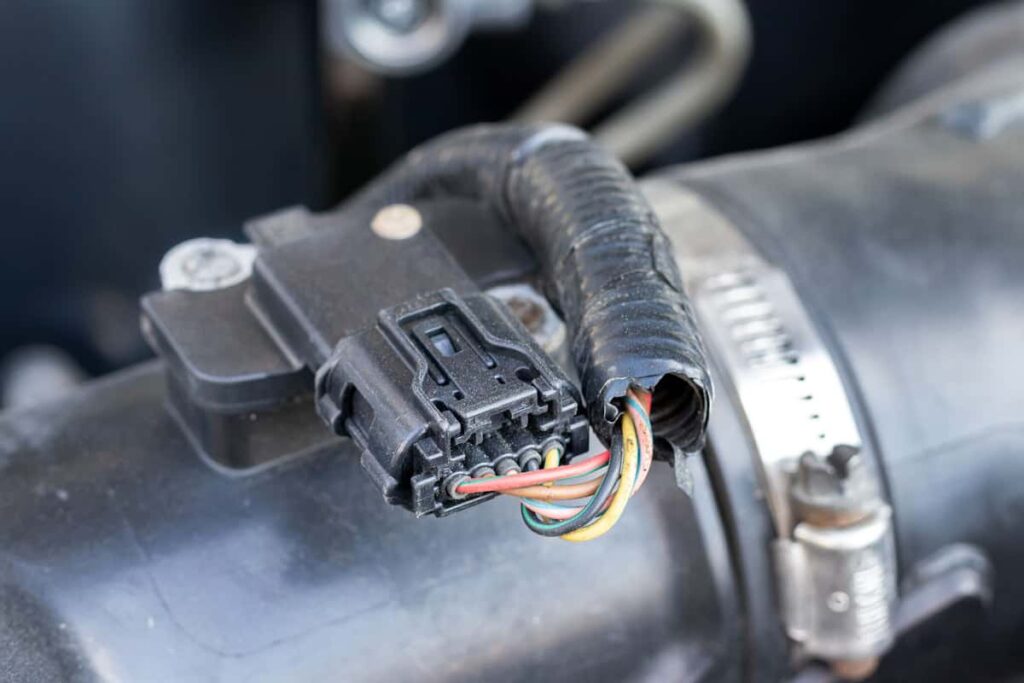
The mass airflow sensor measures the amount of air entering the engine and sends this information to the engine control unit. Based on this information, the fuel injection system adjusts the fuel-air mixture to optimize combustion and improve fuel efficiency.
However, if the mass airflow sensor malfunctions, it can cause the engine to stall or shut off unexpectedly while driving. This is because the engine control unit will not receive accurate information about the air intake, leading to an incorrect fuel-air mixture and misfires.
A malfunctioning mass airflow sensor can have many symptoms, including stalling, hesitation, rough idling, and decreased fuel efficiency. It can also trigger the check engine light, indicating a problem with the sensor.
To prevent stalling or other issues caused by a malfunctioning mass airflow sensor, it is essential to regularly check and maintain the sensor, including cleaning or replacing it as necessary.
9. Vacuum Leaks
The engine’s vacuum system plays a crucial role in regulating various functions, such as controlling the air and fuel mixture, emissions, and more. When there is a vacuum leak in the engine, it can cause a decrease in power, rough idling, and eventually lead to the engine stalling.
Various factors, such as damaged or cracked hoses, faulty intake manifold gaskets, or a malfunctioning vacuum brake booster, can cause vacuum leaks.
How To Fix A Car That Shuts Off While Driving
Fixing a car that shuts off while driving can be a challenging task, and the solution depends on the underlying cause. Below are some steps you can take to fix the most common issues causing a car to stall while driving:
Fixing a Faulty Crankshaft Position Sensor
The crankshaft position sensor can be replaced by a professional mechanic. This repair typically involves disconnecting the battery, locating the sensor, removing it from the engine, and installing a new one. It’s essential to ensure the new sensor is calibrated correctly and installed to prevent further issues. If the sensor is not the problem, other potential causes should be investigated.
Addressing Fuel Pump Issues
A professional mechanic can diagnose fuel pump problems and determine if it needs to be replaced. If the pump is faulty, it will need to be replaced. Replacing the fuel pump can be a complicated and potentially dangerous task. Following all safety precautions and having the proper tools and knowledge before attempting this repair is important.
Replacing a Clogged Fuel Filter
A clogged fuel filter can be replaced by a professional mechanic or the car owner with basic mechanical knowledge. The old filter is typically removed, and a new one is installed in its place. It’s important to use the correct filter for the make and model of the car. The filter should be changed according to the manufacturer’s recommended maintenance schedule.
Repairing Ignition Coil Failure
A professional mechanic can often diagnose ignition coil failure using diagnostic tools. If the coil is faulty, it can be replaced. The old coil is typically removed, and a new one is installed in its place. It’s important to use the correct coil for the make and model of the car. If the coil is not the issue, other potential causes should be investigated.
Fixing Alternator Problems
A professional mechanic can diagnose alternator issues and determine if it needs to be replaced. If the alternator is faulty, it will need to be replaced. Replacing the alternator can be a complicated and potentially dangerous task. Following all safety precautions and having the proper tools and knowledge before attempting this repair is important. The battery should also be checked and replaced if necessary.
Replacing a Weak or Dead Battery
A weak or dead battery can be replaced by a professional mechanic or the car owner with basic mechanical knowledge. The old battery is typically removed, and a new one is installed in its place. It’s important to use the correct battery for the make and model of the car. The battery should be checked and replaced according to the manufacturer’s recommended maintenance schedule.
Addressing an Overheating Engine
Various issues, including low coolant levels, a malfunctioning thermostat, or a damaged radiator, can cause an overheating engine. Diagnosing the root cause of the overheating is important before attempting any repairs. Repairs may involve replacing damaged components, adding coolant, or flushing the cooling system.
Fixing Vacuum Leaks
Vacuum leaks can often be diagnosed by a professional mechanic using diagnostic tools. If a leak is found, the damaged component should be replaced. This may involve replacing hoses, gaskets, or other components. It’s important to use the correct parts for the make and model of the car. Regular maintenance and inspections can help prevent vacuum leaks from occurring.
FAQs
What should I do if my car shuts off while driving?
If your car shuts off while driving, you should first try to safely move your vehicle to the side of the road or a safe location. Then, please turn off the engine and wait for a few minutes before trying to restart it. If the car still doesn’t start, call for roadside assistance or a tow truck.
What are the most common causes of a car shutting off while driving?
Some of the most common causes of a car shutting off while driving include a faulty crankshaft position sensor, fuel pump issues, a clogged fuel filter, ignition coil failure, alternator problems, battery issues, overheating engine, malfunctioning mass airflow sensor, and vacuum leaks.
How do I know if my car’s fuel pump is failing?
Some signs of a failing fuel pump include difficulty starting the engine, reduced power or acceleration, stalling, and unusual noises coming from the fuel tank. You may also notice a decrease in fuel efficiency.
What should I do if my car overheats while driving?
If your car overheats while driving, you should turn off the engine and let it cool down for at least 30 minutes before attempting to drive it again. Check the coolant level and add more if necessary. If the problem persists, have your vehicle inspected by a professional mechanic.
Conclusion
A car shutting off while driving is a serious problem that can cause inconvenience and danger on the road. The root causes of the issue can vary from faulty crankshaft Position sensors and components to fuel system problems and overheating engines.
Diagnosing the issue and taking appropriate measures to fix it is important. Regular maintenance and prompt attention to warning signs can help prevent this problem from occurring. If you are not confident in resolving the issue on your own, it is always best to seek the help of a certified mechanic.

